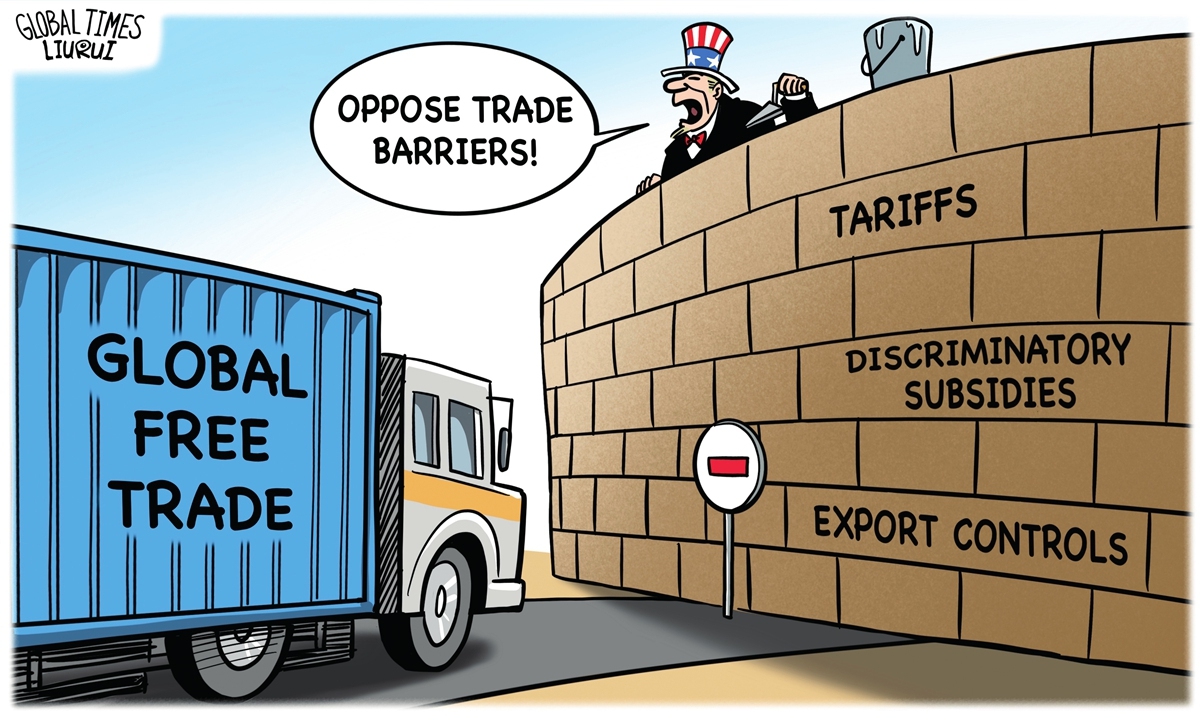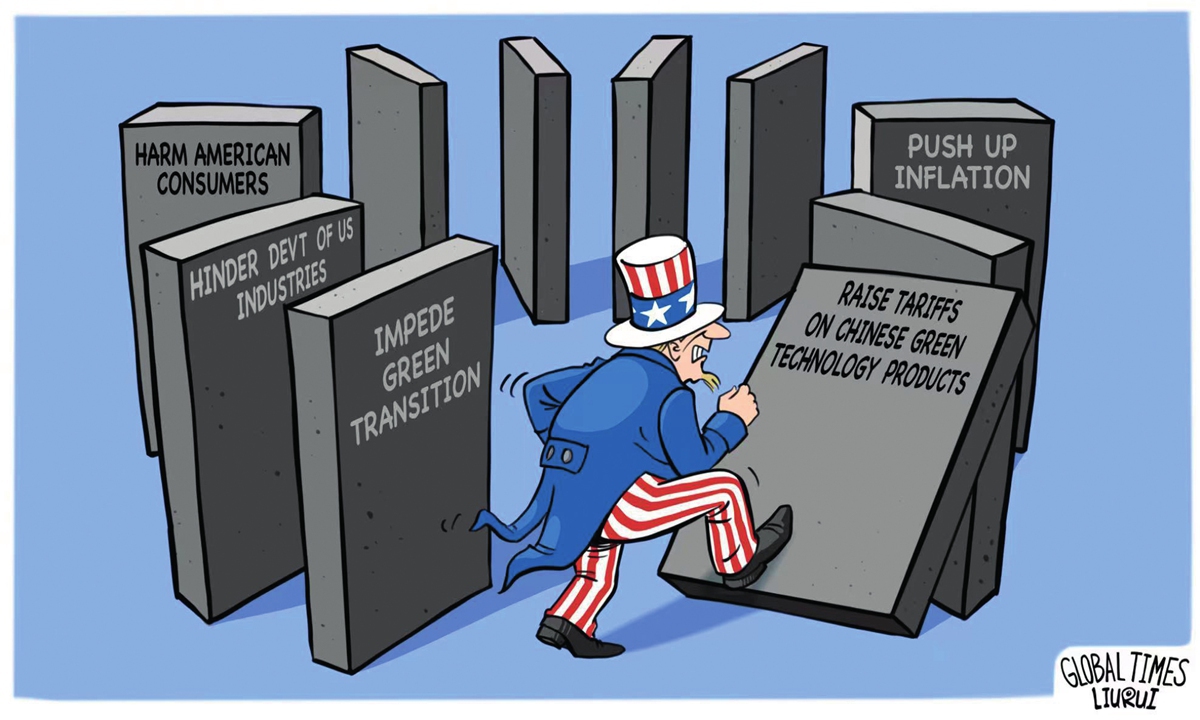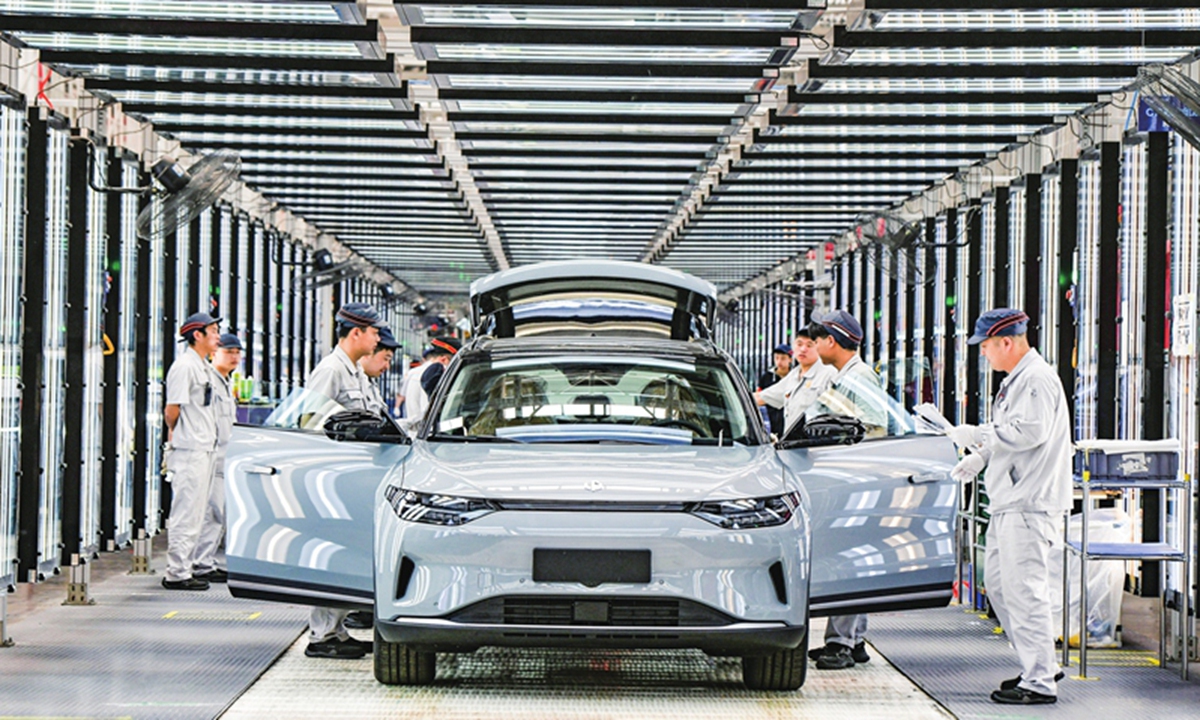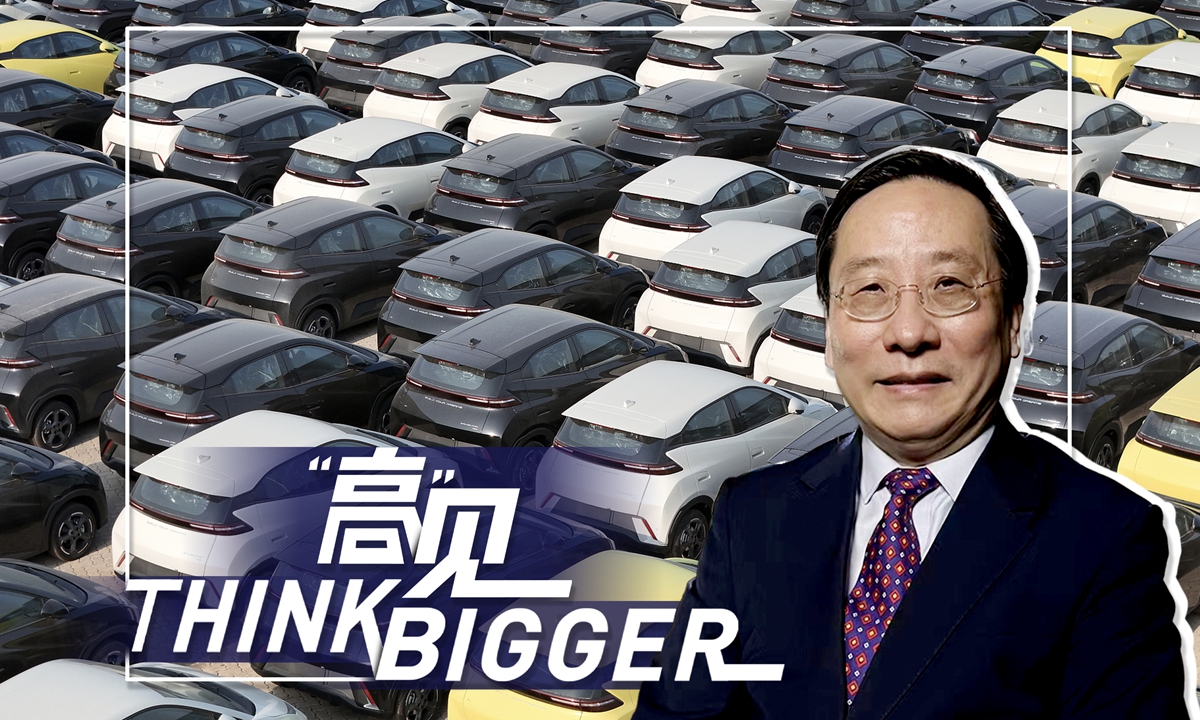Washington’s tariff lies getting harder and harder to cover up: Global Times editorial

Blocking free trade. Illustration: Liu Rui/GT
On Thursday, US Treasury Secretary Janet Yellen stated at the G7 finance ministers and central bank governors meeting that, in the face of China's "industrial overcapacity" leading to "macroeconomic imbalances," a "clear and united front" needs to be present. Yellen also urged countries affected by China's "overcapacity" to respond. The day before, US National Security Advisor Jake Sullivan stated that the issue of "overcapacity" in China is not a bilateral challenge between the US and China, but a global challenge that "creates global imbalances that are not stabilizing." The US hopes to reach a consensus with allies on this issue.
It is not difficult to see that after the US raised tariffs on China, it is now seeking to form a "tariff coalition" to combat China's advanced green production capacity. However, the US approach "distorts trade and investment," according to the International Monetary Fund (IMF). The IMF also urges the US to "maintain an open trade policy," otherwise it "can be very costly for the global economy." Now that the US pretends to be a guardian of the global market, it is very self-righteous, and its actions are seen as absurd and ridiculous in the international community.
Since Washington announced the imposition of a new round of tariffs on China, it has been searching for "legitimacy" for its actions of undermining free trade, blocking criticism of the US internationally, or influencing the perception of other countries, especially Europe. The US has talked endlessly about why it needs to impose tariffs, using different sets of words. From "protecting American workers and businesses" and "not letting China eat our lunch" to "preventing common risks between the US and Europe," the US' lies are becoming harder to cover up, to the point where they even come up with explanations for their tariffs with statements like "preventing global economic imbalance" and "benefiting people and economies around the world." The New York Times revealed a Washington insider joke that the "US trade representative should be retitled US anti-trade representative," indicating that even US political elites do not believe in this self-packaged rhetoric, let alone use it to deceive international public opinion.
The changing rhetoric, from "Chinese overcapacity threatens American companies" to "Chinese overcapacity threatens global companies," reflects the continuous setbacks that the US is facing. There have been at least two unexpected developments in the objective situation: first, the US did not expect such strong opposition from international and domestic public opinion. Starting from the day the new tariffs were announced, media outlets such as The New York Times, The Wall Street Journal, Financial Times and Reuters have continuously criticized the move, putting immense pressure on Washington. Senior officials in Washington even had to resort to sophistry, such as claiming that imposing tariffs will not raise prices and does not mean the US is turning to protectionism. The IMF's criticism of the US for distorting trade and investment has forced the US to insist that "this is a necessary measure," which is essentially equivalent to quarreling.
Secondly, the US did not expect the resistance to be so strong in persuading the EU and other countries. The more frequently senior US officials speak out on China's so-called "overcapacity" issue, urging, persuading, and pressuring allies to be on the same page with it, the more it highlights the fact that many countries do not see eye to eye with the US on this issue.
The Wall Street Journal revealed that the EU is unwilling to coordinate with the US on tariff issues, and many European officials are skeptical of Washington's policy toward China, not to mention the opposition from European and American businesses and industries. Elon Musk bluntly stated on Thursday that Tesla doesn't need government incentives to stay competitive with China and expressed "surprise" at the US' new tariff policy. Previously, Hildegard Mueller, president of the German Association of the Automotive Industry, stated that putting up new tariffs and sliding into protectionism is the wrong way to go. BMW Group Chairman Oliver Zipse also stated that restricting Chinese car manufacturers is not comprehensible.
In fact, those criticisms on the US, despite now sounding extremely harsh for Washington, are truly "bitter medicine that is good for the disease," because history has repeatedly proven that protectionism cannot make an industry or a country's economy strong.
"China's overcapacity" is certainly not a problem between China and the US but a problem with the competitiveness of the US itself. Using tariffs and various non-tariff barriers to protect so-called weak industries not only does not provide any protection but instead accelerates the decline of the industry, as has been repeatedly verified in the past. After US companies were forced to "decouple" from the Chinese supply chain, they were not only unable to find alternative suppliers, but also experienced declines in market value, bank loans, profitability, and employment.
In fact, the US has been hyping up China's economy for many years, but these efforts have never successfully disrupted China's development pace. Now, "no tariff is large enough to really reduce China's global green-tech dominance."
Moreover, there should be great potential for cooperation between China and the US in the field of new energy production capacity, rather than a relationship of weakening and counter-weakening. As some British media have lamented, despite the many tricks the US has tried, "root and branch decoupling" will still be difficult to achieve.



